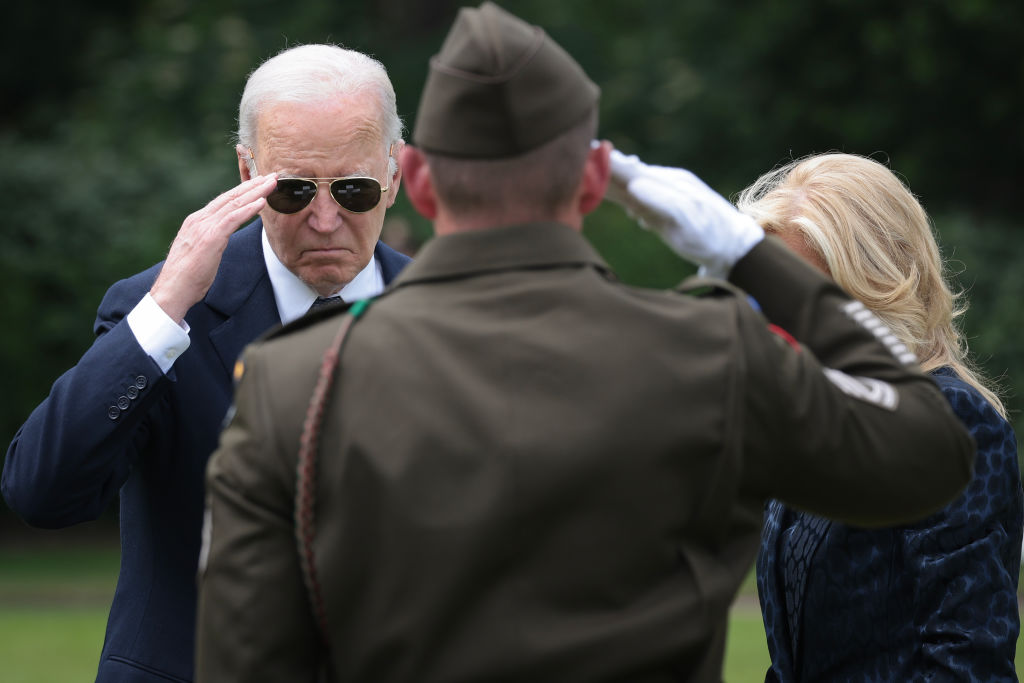Foreign policy rarely plays a significant role in a US presidential election. Domestic issues, the economy, money in the pocket, jobs, immigration, these are what voters are most concerned about. But this time, it could be different.
The first TV debate between President Biden and Donald Trump seemed focused on one thing: is Biden the man to trust to lead the western alliance for another four-year term? Or, as Trump insinuated, is he so weakened and fragile that none of the adversarial leaders in the world have any respect for him, let alone fear him?
For America’s allies, Biden’s lackluster performance will have caused considerable anxiety
Fear, it seems, is the former president’s trump card. As he told Biden and voters in the debate, Vladimir Putin would never have dared invade Ukraine, had he been president. Nor would Hamas have committed the atrocity against Israel on October 7 last year, if he had been in the White House.
While his claim is unprovable, it has become one of Trump’s favorite mantras and in a debate where Biden stumbled and faltered and struggled to compete with his political rival’s foreign policy boasts, the impression left in people’s minds seemed incontrovertible: Trump is the tough leader who gets things done.
In reality, there are a lot of gray areas. While he didn’t put it across with sufficient clarity or robustness, Biden’s great achievement in office was to corral fifty nations into an alliance to provide western backbone for Ukraine’s fight against Russia.
The US, on Biden’s watch, has delivered $175 billion in military assistance to Ukraine since the Russian invasion in February 2022 and, if he wins a second term in the White House, he has promised to support the Ukrainians for as long as it takes to bring the war to an end to Kyiv’s satisfaction.
While Biden described this as a noble and necessary endeavor to prevent Putin from winning in Ukraine and moving on to seize territory elsewhere in the region, such as Poland, he has to persuade skeptical voters that this remains the only way forward when his rival for the White House has promised — and did so again in the debate — to bring the war in Ukraine to a close on his first day.
Trump didn’t explain how he would achieve this, but he didn’t have to because what he is offering probably sounds a lot more attractive to a hardworking, low-earning American voter than a forever war in a country a long way away which is costing taxpayers billions and billions of dollars.
Trump had no easy answer to ending the war in Gaza, but he and Biden at least appeared to share some common ground: they both vowed always to support Israel, but Trump said he wanted the Israeli military to destroy Hamas at all costs, while Biden has become increasingly concerned about the methods used to achieve that objective.
For America’s allies, Biden’s lackluster performance will have caused considerable anxiety. They will be anticipating another Trump presidency with a mixture of alarm and trepidation. He was not an easy man to get along with and gave the impression that he was dismissive of many of the leaders he confronted.
Biden, on the other hand, has been viewed as a president willing to listen. No one in the alliance fears Biden. Many fear Trump and what he stands for.
Biden accused Trump of planning to destroy NATO. He reminded viewers of Trump’s throwaway remark when he invited Russia to do “whatever the hell they want” to NATO members who failed to meet their defense commitments. In fact, more than 70 percent of NATO allies are now on track to spend the obligatory 2.5 percent of GDP on defense.
Trump made no pledges about backing NATO. With the alliance to hold its seventy-fifth anniversary summit in Washington next month, allied leaders will be wondering whether it will be Biden’s swansong.
The clashes on foreign policy throughout the debate revealed nothing new from either Biden or Trump, but the contrast in presentation was so marked, even when Trump was making highly dubious claims, that it undermined Biden’s insistence that he had been a strong and dependable leader of the alliance.
This is the lingering impression that will be left in American voters’ minds which is why foreign policy, normally much lower down the average person’s priority list, could make a difference when they make their decision in the election on November 5.
This article was originally published on The Spectator’s UK website.

